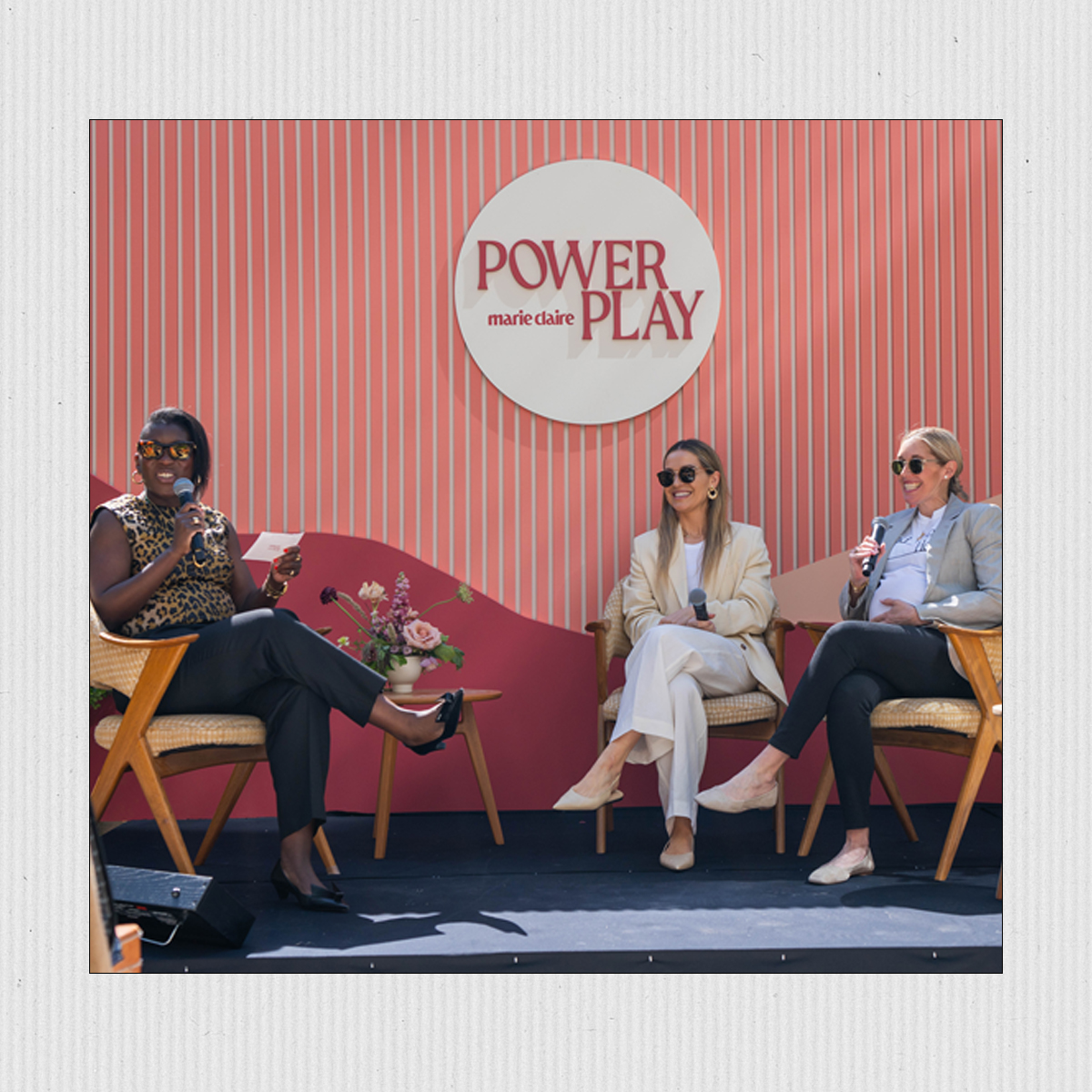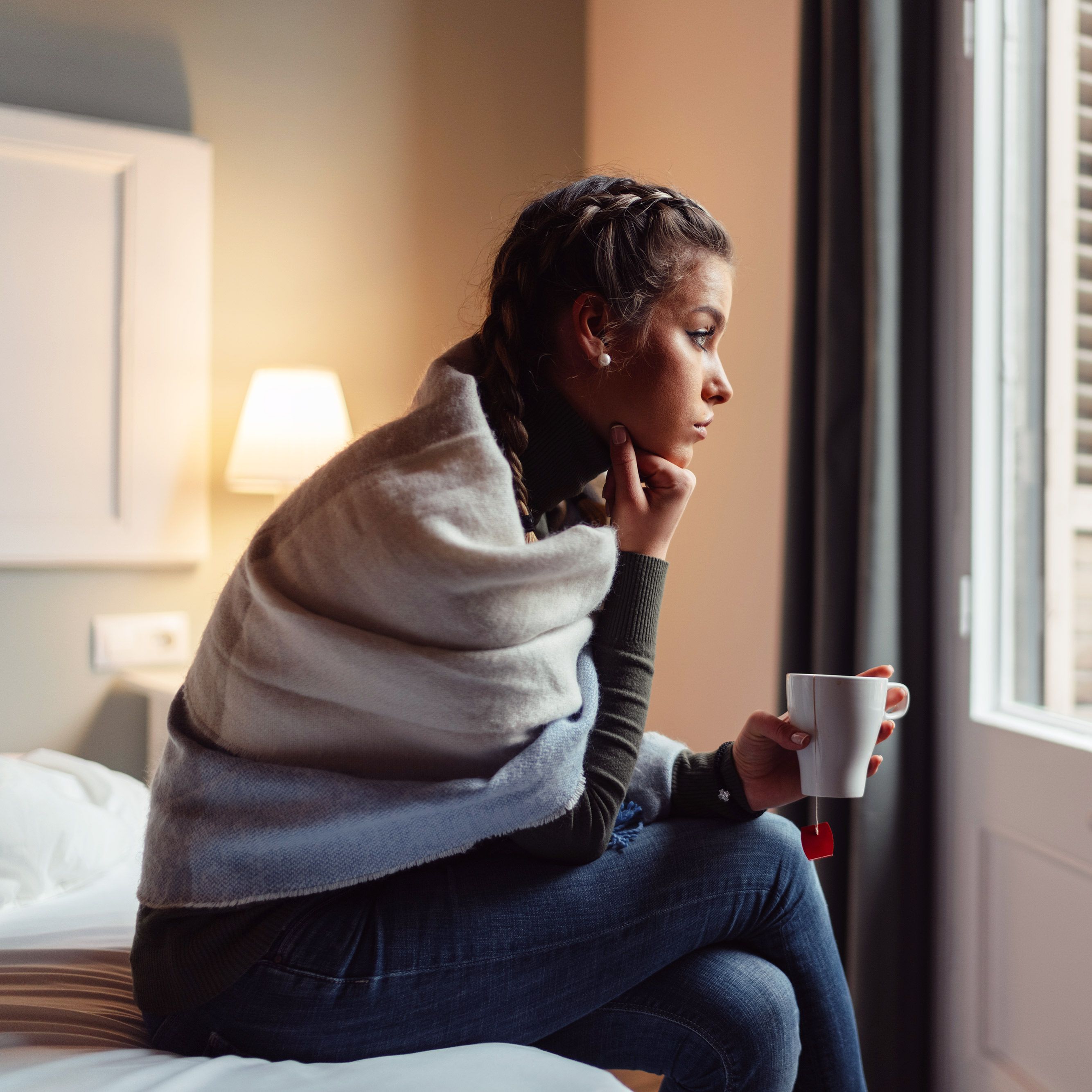The Hunger Diaries: How Health Writers Could Be Putting You at Risk
Six popular bloggers advocate healthier living, but are they putting readers — and themselves — in danger?

This past August, 200 women descended on the Congress Plaza Hotel in Chicago for a "Healthy Living Summit." The weekend conference, the second annual convention for members of an insular food- and fitness-obsessed blog world, was organized by the community's photogenic young founders: Kath Younger (who blogs at katheats.com), Tina Haupert (carrotsncake.com), Meghann Anderson (graduatemeghann.com), Caitlin Boyle (healthytippingpoint.com), and Heather Pare (hangrypants.com). (A sixth founder, Jenna Weber, who writes eatliverun.com, was absent.) Dubbed the "Big Six" by fans, the women hail from all over the U.S. Younger is a registered dietitian, and most of the others have day jobs. But online, the women are cyber-celebrities whose wholesome personas and fitness advice generate hundreds of thousands of monthly page views, attracting a rapt reader base that's caught the eye of big food and wellness corporations.
Those companies—including Stonyfield Farm, Quaker Oats, Arnold, and Oroweat—are wooing the Big Six, hoping to score mentions online and reach their readers: a gold mine of young, educated women hell-bent on achieving sylphlike physiques. Publicity-hungry sponsors offer the bloggers travel, swag, and cash, even ponying up $49,000 for the Summit to cover the organizers' airfare and hotels, an opening-night cocktail party, catering, and conference space.
Now the blogs are even turning the women into national brands. Haupert and Weber have book deals with Sterling Publishing; Boyle's body image guide, for Gotham Books, came out in August. Haupert writes for health.com
and Weber and Anderson offer "slimspiration" tips in magazines. Between book advances, sponsorships, and royalty checks from online aggregators (netting Anderson around $10,000 a year), the women are cashing in on mainstream success—even though only one has university-level nutrition training.
But behind the cutesy titles and sloganeering (Summit motto: "Bloggers for a Balanced Lifestyle") lies an arguably unhealthy obsession with food, exercise, and weight. The blogs' pages of meticulous food photographs and descriptions are often updated several times a day and immediately dissected by readers. A typical morning post documents breakfast with a photo and description—say, a smoothie of raw spinach and rice milk—followed by an afternoon report on the day's herculean exercise and an evening update on perfectly portioned snacks and dinner. Pare once chased a 10-mile run with a flourless, low-fat, black-bean "brownie." Boyle ran 22 miles and, after a day of light eating, signed off with, "I am so hungry!"
Several of the women were out of shape in college and lost weight after graduation, an experience ecstatically detailed on Boyle, Younger, and Anderson's blogs. The sites feature weight-control tips and even cover "food sabotage" (spoiling treats to avoid eating them). Weeks before the 2009 San Diego Marathon, Anderson ate some coconut mousse cake, then destroyed the rest. Younger, who wrote about netting out at 1,100 calories one day, trying to maintain her "happy weight," has described pouring salt on desserts after one bite. In a post about whether this kind of food destruction was "disordered eating," Pare recalled trashing an entire batch of cookies after craving "just one more."
At the Chicago Summit, fruit and fat-free yogurt vanished from the catered breakfast buffet; mini croissants and mini muffins languished. "We told them not to serve that stuff," said Boyle of the carbs. Several women there appeared emaciated. Despite training for a December marathon, Boyle ditched her breakfast dish—piled with fruit, bagel thins, and fat-free yogurt—after a few bites. Later, she posted a picture of her full plate online, raving about the "amazing" food.
Many of the bloggers post their heights and weights and share weight-loss goals and eating plans. On Pare's site, a debate exploded over whether her "typical day of eating"—including servings of oats, peanut butter, flax, and a mini Lärabar—was "a lot." Occasionally, the women describe desserts or frosty mugs of beer, but New York—based sports nutritionist Marissa Lippert is skeptical. "I'm concerned they're touting treats but not comfortable enjoying them because of their extreme mentality and low body weights," she says. Last year, Anderson blogged that she lost her period thanks to what her doctor said was "amenorrhea due to my intense, high-mileage running"—a red flag for low body fat and a risk factor for osteoporosis, says Lippert. Assessing Anderson's posts during marathon training, Lippert estimates Anderson ate about 1,400 calories a day—600 to 800 under the minimum she needed, based on her training.
Stay In The Know
Get exclusive access to fashion and beauty trends, hot-off-the-press celebrity news, and more.

Doctors consulted by Marie Claire supported the women's aim to be healthy, and said certain meals seemed more nourishing than others, but found aspects of the blogs alarming. "People can dabble in eating-disordered behavior without quite meeting the diagnostic criteria for an eating disorder," says Dr. Ovidio Bermudez, medical director of the Eating Disorders Program at Laureate Psychiatric Clinic and Hospital in Tulsa, Oklahoma. Bermudez has seen an uptick in patients with "subthreshold symptoms," who show some eating- or exercise-disordered behavior without having a full-blown illness. The blogs appear "pro-healthy eating," he says, but "the compulsiveness and lack of self-care" they exhibit are worrying.
Then there's the effect on readers. "The sheer number of food images and intense exercise descriptions can be particularly triggering to eating-disorder-prone followers," says Dr. Robyn Silverman, a developmental psychologist in Mount Freedom, New Jersey, whose book, Good Girls Don't Get Fat (published in October), addresses influences on female body image. Silverman worries readers could log on and "push their bodies to the extreme to match the workouts or eating habits of their idols, when it may be inappropriate." A disclaimer which ran on Weber's blog directed readers with eating disorders to a doctor, implying sick women read her site. And the bloggers inspire copycats. When Boyle announced a two-part fitness challenge—tackling Jillian Michaels' "No More Trouble Zones" program and training to beat her 5K record—116 commenters responded, many pledging to join her.
Reached by Marie Claire, the six bloggers denied having eating or exercise disorders. "The vast majority of Americans aren't anorexic or bulimic. They're overweight and have no idea how to eat healthy," says Boyle. "If they read blogs like mine, maybe they'd learn something." Anderson—who blogged about running a 5K, a 15K, and a marathon race in one weekend—says some readers have told her they've gotten hurt imitating her workouts. "I just assume people have common sense," she says. However, several commenters have questioned her lack of rest days during her training schedule.
Sari Shepphird, Ph.D., a clinical psychologist based in West Los Angeles who specializes in eating disorders, can't diagnose the women via their blogs. But generally, she says, exercising despite injury, illness, period loss, on "rest" days, or to compensate for calories are all signs of "exercise dependence," a condition found in half of eating disorders, and which, combined with an eating disorder, can lead to osteoporosis, hormone imbalances, and risk of cardiac arrest. Feeling guilty on days off is another clue, she says. Many of the bloggers do exercise when sick or "resting." Even Weber, whose posts feature recipes for cookies and pizza, can overdo it. Waking up early one day, she wrapped her blistered feet in moleskin for a run. Forced to stop after two miles because of her "shredded" feet, she wrote she was "so mad I started to cry." Haupert blogged about "exercise guilt" after three days without a workout; many readers sympathized.
"I'm disappointed to hear some of this," says Sarah Badger, communications manager of Stonyfield Farm. "We do due diligence in finding blogs with healthy messages."
"We can't comment on the perspectives of the bloggers," says Candace Mueller Medina, a Quaker Foods & Snacks spokeswoman. In a statement, Bimbo Bakeries, owner of Arnold and Oroweat, says, "We don't support extreme lifestyles." (The company brought a registered dietitian to the Summit.)
Miriam Rich, Boyle's editor at Gotham, says she doesn't know as much about Boyle's blog. "The book (Operation Beautiful, based on a trend Boyle started, asking women to stick Post-its with body affirmations out in public) celebrates positive notions of natural beauty."
Vulnerable readers might be getting a different message. In January, Liz Stark (online alias: veggiegirl), a Big Six follower who blogs about her diet and her Crohn's disease, posted a haunting video of herself, gaunt, with protruding cheekbones and thin hair. On the advice of her counselor, Stark said she was giving blogging a break; she had 20 pounds to gain. "The last thing I need to worry about is how to eat less and move more," she said. When we e-mailed her, she wrote tersely that blogging helped her "form friendships and learn new information."
"Sometimes concern is appropriate," says Anderson of the video. But "the blogger is making the choices that are right for her." Meanwhile, discussion of the 2011 Healthy Living Summit has already begun.
Katie Drummond is a New York—based journalist who covers health and science for AOL News.
To our readers: Thank you all for your responses to this article. Since the piece went online, hundreds of you have written to us. Twitter, Facebook, your blogs, and comments on our web site have all been lighting up with messages, and we are thrilled to hear from you. Some of you wrote in anger, while others applauded us for voicing concerns about this community. We believe the outpouring of comments proves the issues raised in the piece are important. This is a controversial subject, and we always welcome a good debate. Like every article published in Marie Claire, this one was researched and edited carefully over the course of many months, and we stand by its content. Thank you for letting us know how you feel — we are listening!
Katie Drummond is the News Editor at Prevention.com. Previously, she has covered national defense, health and science for Wired's Danger Room, The Daily and AOL News, and written for New York Magazine, Marie Claire, Popular Science, Forbes and other outlets. She lives in Brooklyn and likes her boyfriend, cats and competitive stair-climbing.
-
 Princess Anne's Unexpected Suggestion About Mike Tindall's Nose
Princess Anne's Unexpected Suggestion About Mike Tindall's Nose"Princess Anne asked me if I'd have the surgery."
By Amy Mackelden Published
-
 Queen Elizabeth's "Disapproving" Royal Wedding Comment
Queen Elizabeth's "Disapproving" Royal Wedding CommentShe reportedly had lots of nice things to say, too.
By Amy Mackelden Published
-
 Palace Employees "Tried" to Get King Charles to "Slow Down"
Palace Employees "Tried" to Get King Charles to "Slow Down""Now he wants to do more and more and more. That's the problem."
By Amy Mackelden Published
-
 There's a Huge Gap in Women's Healthcare Research—Perelel Wants to Change That
There's a Huge Gap in Women's Healthcare Research—Perelel Wants to Change ThatThe vitamin company has pledged $10 million to help close the research gap, and they joined us at Power Play to talk about it.
By Nayiri Mampourian Published
-
 BetterMe Will Make Your New Year’s Resolutions Last the Other 12 Months
BetterMe Will Make Your New Year’s Resolutions Last the Other 12 MonthsSponsored BetterMe: Health Coaching uses a psychology-based program to approach your health goals from all angles, so they stay within reach.
By Sponsored Published
-
 Everlywell's At-Home Test Kits Are 40% Off
Everlywell's At-Home Test Kits Are 40% OffThe testing company is offering big savings on some of their most popular kits.
By The Editors Published
-
 The Truth About Thigh Gaps
The Truth About Thigh GapsWe're going to need you to stop right there.
By Kenny Thapoung Published
-
 Don't Miss Frida's Realistic Breastfeeding Ad That Aired at the Golden Globes
Don't Miss Frida's Realistic Breastfeeding Ad That Aired at the Golden GlobesThe commercial accurately depicts the struggles of breastfeeding.
By Zoe Guy Published
-
 Are New Year's Resolutions Still a Thing?
Are New Year's Resolutions Still a Thing?How To Our resident psychiatrist offers a way to make that resolution (finally) stick.
By Samantha Boardman Published
-
 Inside THE WELL, NYC's New Private Fitness and Wellness Club
Inside THE WELL, NYC's New Private Fitness and Wellness ClubWhat if you had all of your doctors—plus a personal trainer, meditation room, and sauna—under one roof?
By Rachel Epstein Published
-
The Easy Way To Add More Time To Your Morning
Because we can all use an extra 15 minutes.
By Hannah Miller Published